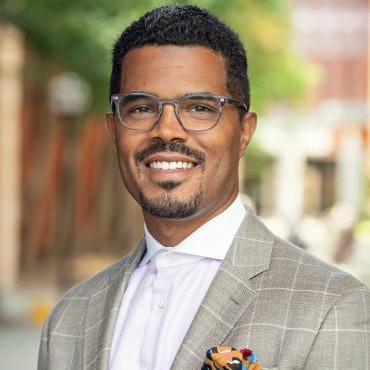The College Board has released a revised framework of its African American studies Advanced Placement (AP) course, a course that has received plenty of criticism from both advocates and critics this year. Dr. Terrell Strayhorn
Dr. Terrell Strayhorn
With this Dec. 6 release, the testing company almost bookends 2023 with its AP African American studies framework releases. The previous version was released in early February 2023 after building on a pilot program the College Board had implemented in select U.S. public high schools last year.
The Feb. 1 version of the framework – a 234-page document with input from high school teachers and African American studies professors – received backlash from advocates, who criticized how the framework downplayed topics such as Black Lives Matter, slavery reparations, intersectionality, and queer life.
The College Board also faced pushback from conservatives, like Florida Gov. Ron DeSantis, who in January, blocked initial plans to pilot AP African American studies in the state’s high schools.
The College Board denied making changes in the Feb. 1 framework to appease DeSantis and others, but reporting by various news outlets indicated that the company did have repeated contact with Florida officials before its release. In April, it announced plans to revise the framework again.
This new Dec. 6 framework brings with it several changes to the subject matter, wording, and sources involved. A look at the comparison chart the College Board released with the framework itself shows that many new sources have been added to the curriculum – either fixed or optional – and some have either been removed or made optional.
Around 13,000 students from nearly 700 schools are piloting the AP course for the 2023-24 academic year, according to The College Board. And the students in this second pilot year can take the AP exam in the spring.
The new 294-page framework adds several sources to topics such as the nature of Black studies itself; African culture and religion; reunification of Black families in the post-Civil War-era; African Americans in media and art; anticolonialism; Black participation in World War 2; and African Americans in U.S. politics.
It also expands content on important subjects currently embroiled in American culture wars and sociopolitical controversies, including white supremacist violence in the U.S.; segregation and discrimination; grassroots organizing and the Civil Rights Movement; and Black feminism.
“One of the most exciting parts about it is not just the mere consumption of information about Black life, Black history, Black futures, but also purposeful examinations of what activism has looked like and can look like,” said Dr. Terrell L. Strayhorn, vice provost and director of research for the Center for the Study of HBCUs at Virginia Union University. “What does it mean to be an active participant in democracy? What does it mean to use one's voice?”
Strayhorn said he viewed this version of the framework as an improvement from the last.
Additionally, the College Board rephrased the wording of certain course section titles. For instance, “The Concept of Race and the Reproduction of Status” is now “The Social Construction of Race and the Reproduction of Status” and “The Black Panther Party” was changed to “The Black Panther Party for Self-Defense.”
The concept of “intersectionality” makes a return in the section under the title, “The Black Feminist Movement, Womanism, and Intersectionality.” Previously, the term had been mentioned just once. Coined in the ‘90s by Kimberle Crenshaw, the Isidor and Seville Sulzbacher Professor of Law at Columbia University and a professor at UCLA, intersectionality is “a framework for understanding Black women’s distinct experiences through the interactions of their social, economic, and political identities with systems of inequality and privilege,” according to the document, which also names Crenshaw after omitting her name before.
 Dr. Charles H.F. Davis III
Dr. Charles H.F. Davis III
Matters such as the Black Lives Matter and reparations can be found at the end of the curriculum, along with the prison industrial complex’s relationship to the disproportionate incarceration of African Americans. They are designated as topics that teachers can choose to teach during the course’s “Further Explorations week.”
“I think part of this is to be able to work within the confines [of some states that have been hypercritical] of AP African American studies being a part of their curriculum,” said Dr. Charles H.F. Davis III, an assistant professor in University of Michigan’s Marsal Family School of Education. “It provides an option for instructors. The instructors have some level of academic license or freedom."
Davis, a race scholar, said that he "thankful" that some changes has been made, but added that educators should still "do their due diligence, to similarly prepare like they would for any other lesson or plan if they want to take those things up.”
Individual teachers are allowed to include additional content as they wish, The College Board said in a statement.
To expect one course to capture all of African American studies is a tall order, Strayhorn said. And content omissions in this version can be updated in future iterations along with new developments.
"It seems unreasonable to me to think that a single course in any topic, but certainly this topic, would be enough to cover the complexity and the richness of Black life in the world,” he said. “But I think if you were looking for a sort-of survey course that covers the history of Black intellectual thought, ... Black history, the Civil Rights Movement, intersectionality, arts, and sports, and also doesn't just do that in a performative way, it's substantive."


















